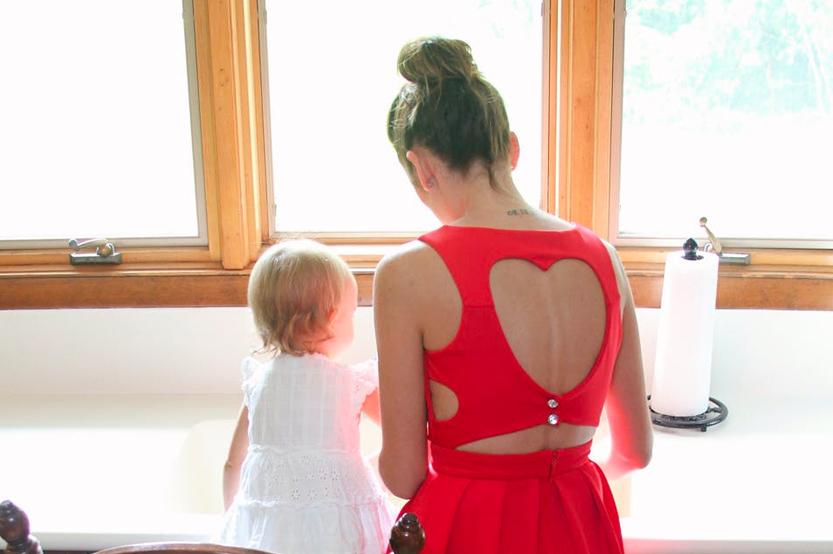Even though the LGBTQ community is achieving significant recognition and representation in society, members still have a long way to go before being fully embraced as part of the current era.
One essential but inadequately serviced aspect is recognizing LGBTQ households and providing a welcoming and supportive environment for such families to prosper. There aren’t enough resources and professionals to provide the guidance needed for this community to grow mentally and emotionally as members of a family.
This article provides an informative guide on how to go about raising a baby in such a family.
How do LGBTQ parents affect their children?
It is important to understand that children who have been raised by LGBTQ parents will probably need more emotional support and guidance to adjust well to the external environment and the challenges that may be posed put there. For instance, we have to see that LGBTQ has not been entirely accepted and embraced in society.
Homophobic parents will almost always raise their children to be homophobic, so their interaction with your children may not always be smooth. It is important to talk to your children about this, prepare them to anticipate attacks and show them how to deal with them.

The first thing you should do is create a supportive environment at home. You want to make it a good and friendly place where the child can ask questions and get clear and accurate answers.
Do LGBTQ parents affect their children’s emotional development?
No. Research has already been done, and it proves that children raised by LGBTQ parents are not emotionally different from those brought up in heterosexual homes. They are not more likely to transform into LGBTQ members than children raised by straight parents and are neither more likely to be sexually abused. They also don’t show different gender identity and gender role behavior when compared to their peers raised in heterosexual households.
It is essential to understand that the actions, relationship and emotional health of any child will be primarily determined by the way they interact and relate with their parents rather than the parents’ sexual identity.
What are same-sex parents options for having babies?
In a shallow perspective, it may seem like such couples don’t have many options when it comes to getting babies. On the contrary, however, they have just as many options as heterosexual parents. They will also face the same procedures and may have to deal with similar problems that occur regardless of sexual orientation, such as infertility and sterility.
Some of the most common options include:
- Adoption – Just as in heterosexual families, gay couples can also apply for adoption and qualify if they meet all the terms and requirements.
- Insemination – This applies to lesbian couples. One or both members may be inseminated with a donor sperm which, if procedures are correctly followed, should fertilize and grow to a baby. You only need a confirmation that the process is successful and you can be on your merry way to buy baby clothes and whatnot.
- A gestational carrier – This is where the couples choose to have the fertilized egg grow to maturity inside a surrogate.
- Reciprocal IVF – in a lesbian couple, one partner provides the egg which is then fertilized and implanted in the other partner.
- Co-parenting – this is where the couple gets into planned parenthood with another party in a purely platonic relationship.
These are just some of the most common ways that LGBTQ parents can raise children. The list is not exhaustive though. Solutions can be tailormade depending on the needs, sexual identity and health of the partners. There is nothing to get in the way of LGBTQ members to stop them from getting children and raising them.

Your children’s behavior is affected more by your relationship with them and the environment at home than your sexual orientation.
How can LGBTQ parents prepare their children to deal with challenges stemming from discrimination?
Even though research shows that children from LGBTQ families and those with heterosexual parents adjust the same way, the former is more likely to be bullied and discriminated against based on their parent’s sexual orientation. Here are a few ways to prepare your children for this:
- Help them understand what the LGBTQ community is and what it is all about. Help them understand the meaning of sexual freedom (if you think that they are too young and this seems too complicated for them, explain that love has no sexual orientation)
- Gather some of the questions and comments they will most likely face and help them answer them truthfully with no fear
- Keep an open and friendly environment at home where they can ask questions and get appropriate responses with proper regard to their age.
- Use more LGBTQ-rich resources around them such as books with LGBTQ families and reasoning
- Listen to any teasing or inappropriate comments they may have come across and help them find appropriate responses to them. Have them practice answering these at home so they can say it with more confidence when you are not around to defend them.

Solutions can be tailormade depending on the needs, sexual identity and health of the partners. There is nothing to get in the way of LGBTQ members to stop them from getting children and raising them.
How can I build a support network for my family as an LGBTQ household?
The first thing you should do is create a supportive environment at home. You want to make it a good and friendly place where the child can ask questions and get clear and accurate answers. Educate them as well as you can about the LGBTQ community and include more resources for them to dig deeper when they want to.
You could also consider moving to a more supportive environment where the child is less likely to be discriminated. Enrol them in a supportive school where they use LGBTQ-friendly material to teach them and discourage bullying on this account.
Consider having your children interact more with others who have LGBTQ parents. This will help them build a support network with other children who they will consider the same as them.
In conclusion, your children’s behavior is affected more by your relationship with them and the environment at home than your sexual orientation. Raise them to appreciate who you are, and you will be allowing them to enjoy who they are. Above all, respect your children’s gender stand and get them appropriate footwear and clothes to go with it – things will become clear to them as they get older.





































































